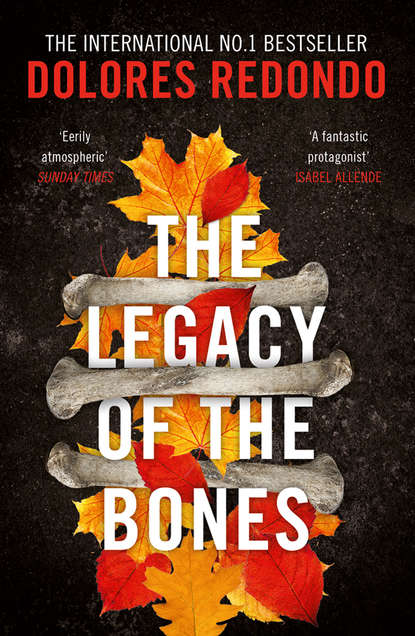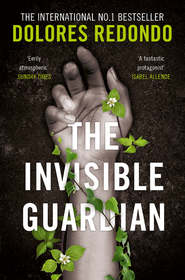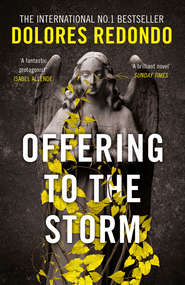По всем вопросам обращайтесь на: info@litportal.ru
(©) 2003-2025.
✖
The Legacy of the Bones
Автор
Год написания книги
2019
Настройки чтения
Размер шрифта
Высота строк
Поля
‘On one occasion, two brothers were walking along a path on their way home from a fair in a neighbouring village, where they had sold their sheep and had a good time. They were chatting happily when suddenly they stopped in their tracks: they had seen the tarttalo.
‘They tried to flee, but the ogre seized them both with one hand and carried them back to his cave. When he got there, he flung them into a corner and started to build a huge fire with oak branches. When he’d finished, he placed a big roasting spit over the fire. The two brothers watched, quaking with fear. The ogre picked up the fatter of the two, killed him with a single blow and stuck him on the spit. The other shepherd wept bitter tears as he witnessed the ogre devouring his brother’s body. When it had finished its gruesome meal, the ogre picked up the other lad and threw him on to a pile of sheepskins.
‘“You need fattening up,” he said contemptuously, his sadistic laughter echoing off the walls of the cave. Then he added: “But to stop you from running away, I’m going to put this ring on your finger.”
‘And with that he slipped a magic ring on to the lad’s finger. It had a human voice that cried out incessantly: “Here I am! Here I am!”
‘After that, the tarttalo fell soundly asleep.
‘Rather than wait to be fattened up and eaten by the ogre, the shepherd resolved to escape, come what may. And so, crawling over to the fire, he picked up a spit and held it over the flames until it was red-hot. Then, clutching the end firmly, he made his way over to where the tarttalo was snoring, and drove it into the one eye on his forehead.
‘The monster, crazed with pain and rage, rose to his feet, letting out savage roars and sweeping the air with his huge paws in search of the shepherd who had stabbed him in the eye.
‘But the youth dodged his assailant’s frenzied attacks, nimbly clambering over the sheep huddled inside the cave and covering himself in an animal hide to try to sneak past the ogre, who was now blocking the mouth to the cave.
‘The lad managed to get past him, but the magic ring started to cry out:
‘“Here I am! Here I am!”
‘Guided by the ring, the tarttalo, despite his vast size, bounded like a deer after his prey.
‘The young shepherd feared he would never escape. Though he ran and ran, trying to hide in the forest, each time the ring led the ogre to him with its resounding cry:
‘“Here I am! Here I am!”
‘Realising he would be caught – and terrified by the ogre’s angry howls and curses – the shepherd made a brave decision: he tore off the finger with the tell-tale ring on it and threw it down a well.
‘“Here I am! Here I am!”
‘Following the ring’s calls, the tarttalo leapt head-first down the well and drowned.’
‘You’re right,’ Amaia said, grinning. ‘It’s a great story – and I can tell you’re in your element here.’
‘Well, it isn’t all myth and fable. In a more modern context, tarttalo is the name given by some terrorist groups to a type of bomb: a box with no visible wiring, containing an LDR photoelectric cell – in effect, a single, light-sensitive eye; hence tarttalo. As soon as the box is opened, the light detonates the explosive device.’
‘Yes, I’ve heard of that, but I don’t think it’s relevant. What more do you have?’
‘A small film production company called Tarttalo, plus half a dozen restaurants in various parts of the Basque Country. On the Internet I came across various references to the fables, animation shorts about ogres, silkscreens for T-shirts, a village where they bring out an effigy of the tarttalo during local fiestas. Then there are a handful of blogs that either use the name Tarttalo, or make references to it. I’ll send you the links. Ah, and it seems the spelling you mentioned, with two “t”s, is the old way of writing it. And then there are José Miguel de Barandiarán’s books on Basque mythology.’
At that moment, the telephone on Jonan’s desk rang, interrupting his explanations. He apologised, picking up the receiver and listened briefly before gesturing to her as he hung up.
‘The Commissioner wants to see you, chief.’
The Commissioner was on the phone when she entered his office. She murmured an apology and turned towards the door, but he raised his hand, motioning for her to wait.
He hung up and sat staring at her. Amaia assumed he was being leant on by the Archbishop, and was about to tell him they hadn’t come up with anything yet, when he took her by surprise.
‘You aren’t going to believe this – that was Judge Markina. He called to tell me that the man being held for the murder of Lucía Aguirre has been in touch to tell him that if you go to see him in prison, he’ll tell you where to find the victim’s body.’
Amaia drove out to Santa Lucía hill, where the new Pamplona prison was situated, flashed her badge at security and was immediately shown into an office where the prison governor, whom she had met before, was waiting for her. So too were Judge Markina and a legal secretary. As she entered, the judge rose to greet her.
‘Inspector, I’ve not had the pleasure of greeting you in person, as I was appointed when you were on maternity leave; thank you for coming. This morning Quiralte asked to see the governor. He told him that if you agreed to see him he would tell you where Lucía Aguirre’s body is.’
‘And do you think he will?’ she asked.
‘The truth is, I don’t know what to think. Quiralte is a cocky individual who bragged about his crime then refused to say where he had hidden the body. According to the director, he’s like a pig in clover. He eats well, sleeps well, is sociable and active.’
‘He seems in his element,’ agreed the governor.
‘So this could be a trick, or perhaps he means it. Either way, he insisted it had to be you and no one else.’
Amaia recalled the day they had arrested him and the way he had stared at the two-way mirror while another officer was interrogating him.
‘Yes, he asked to talk to me when we arrested him as well, but the reasons he gave seemed like a joke. Back then I was about to go on leave, so he was questioned by the team that had been working on the case.’
Quiralte had been waiting for ten minutes when Amaia and the judge entered the interview room. He was sitting slumped in an upright chair by the table, his prison uniform unbuttoned halfway to the waist. He gave a forced smile that revealed whitish, overly long gums.
‘The return of El Macho, indeed,’ thought Amaia, recalling Jonan’s comment the day they had first arrested him.
Quiralte waited for them to install themselves on the other side of the table, then sat up straight and proffered his hand to Amaia.
‘So you’ve finally condescended to see me, Inspector. It’s been a long wait, but I must say it’s worth it. How are you? How’s your baby boy?’
Amaia ignored his outstretched hand. After a few moments he lowered his arm.
‘Señor Quiralte, the only reason I came here today is because you promised to reveal the whereabouts of Lucía Aguirre’s remains.’
‘As you wish, Inspector, you’re the boss, but the truth is I thought you might be a little friendlier, seeing as I’m helping raise your profile as star cop,’ he said, grinning.
‘Señor Quiralte—’ Markina began.
‘Shut up,’ Quiralte hissed. Markina looked daggers at him. ‘If you don’t stay quiet, your honour, I won’t say a word. In fact, what the hell are you doing here? Wasn’t I clear enough about only wanting to speak to Inspector Salazar? You should be grateful I let you stay.’
Judge Markina pulled his arms away from the table, stiffening as though ready to pounce on the prisoner if necessary. Amaia could almost hear his muscles crack with indignation; nevertheless, he remained silent.
Quiralte’s wolfish grin returned, and, ignoring Markina, he addressed Amaia once more.
‘I’ve been waiting a long time, four whole months. I wanted to get this over with sooner – it’s entirely your fault that the situation dragged on, Inspector. As I’m sure you know, I asked to speak to you when I was arrested. If you hadn’t refused, you would have that slut’s body by now, and I wouldn’t have been forced to rot away in prison all this time.’
‘That’s where you’re wrong,’ said Amaia.
Quiralte shook his head, grinning. It occurred to her that he was enjoying himself.
‘So?’ she asked.
‘Do you like to drink patxaran, Inspector?’
‘Not all that much.’











